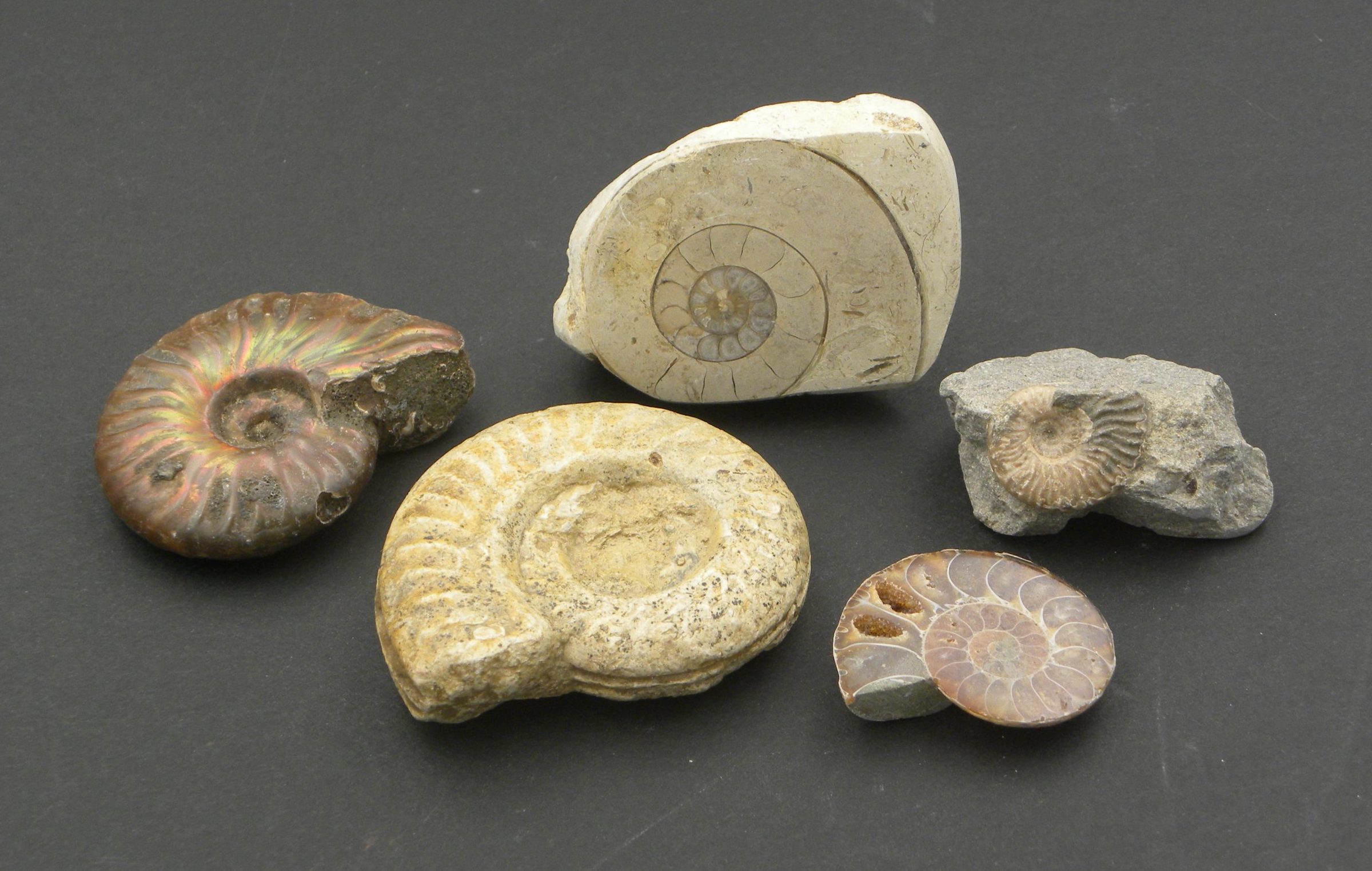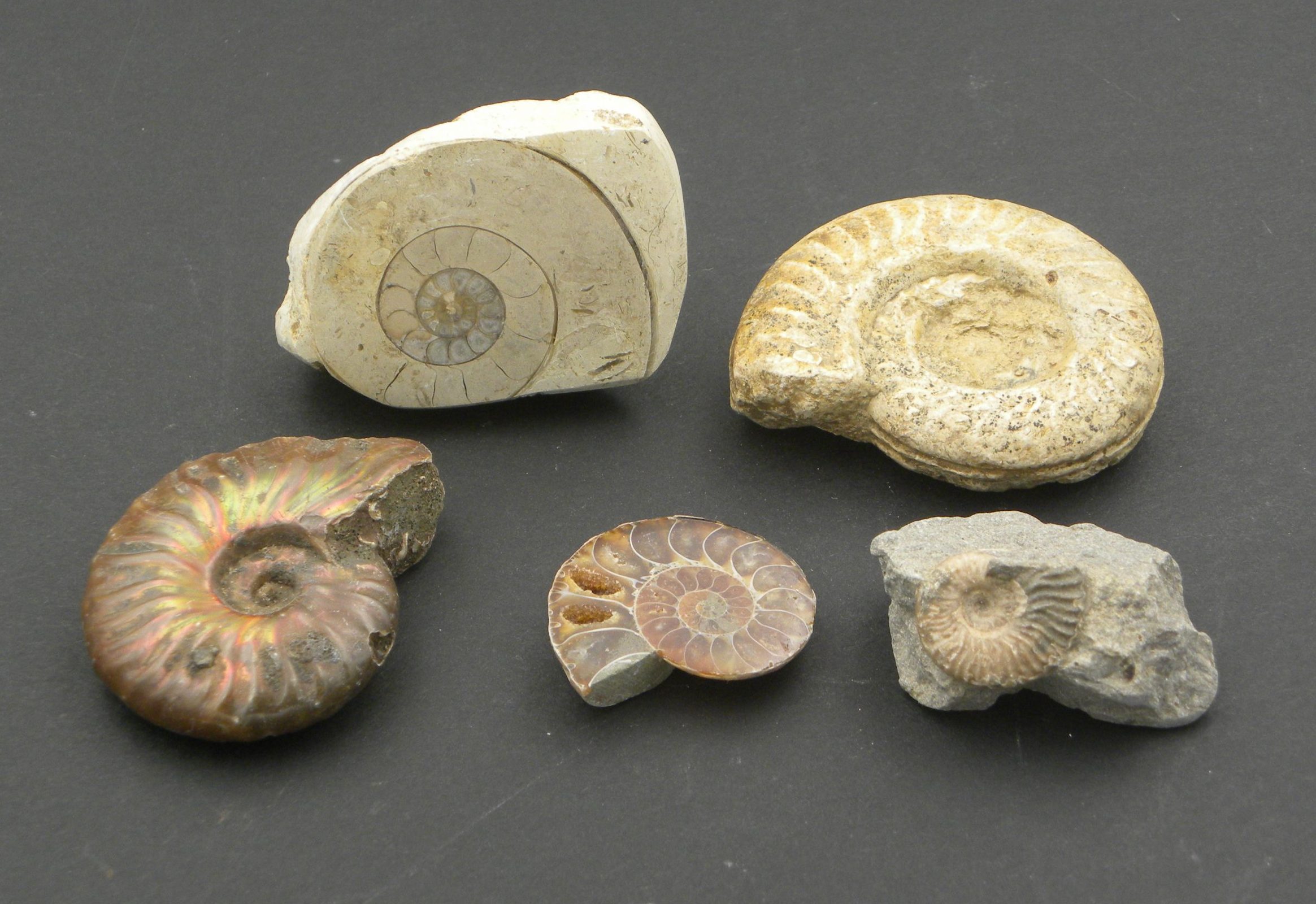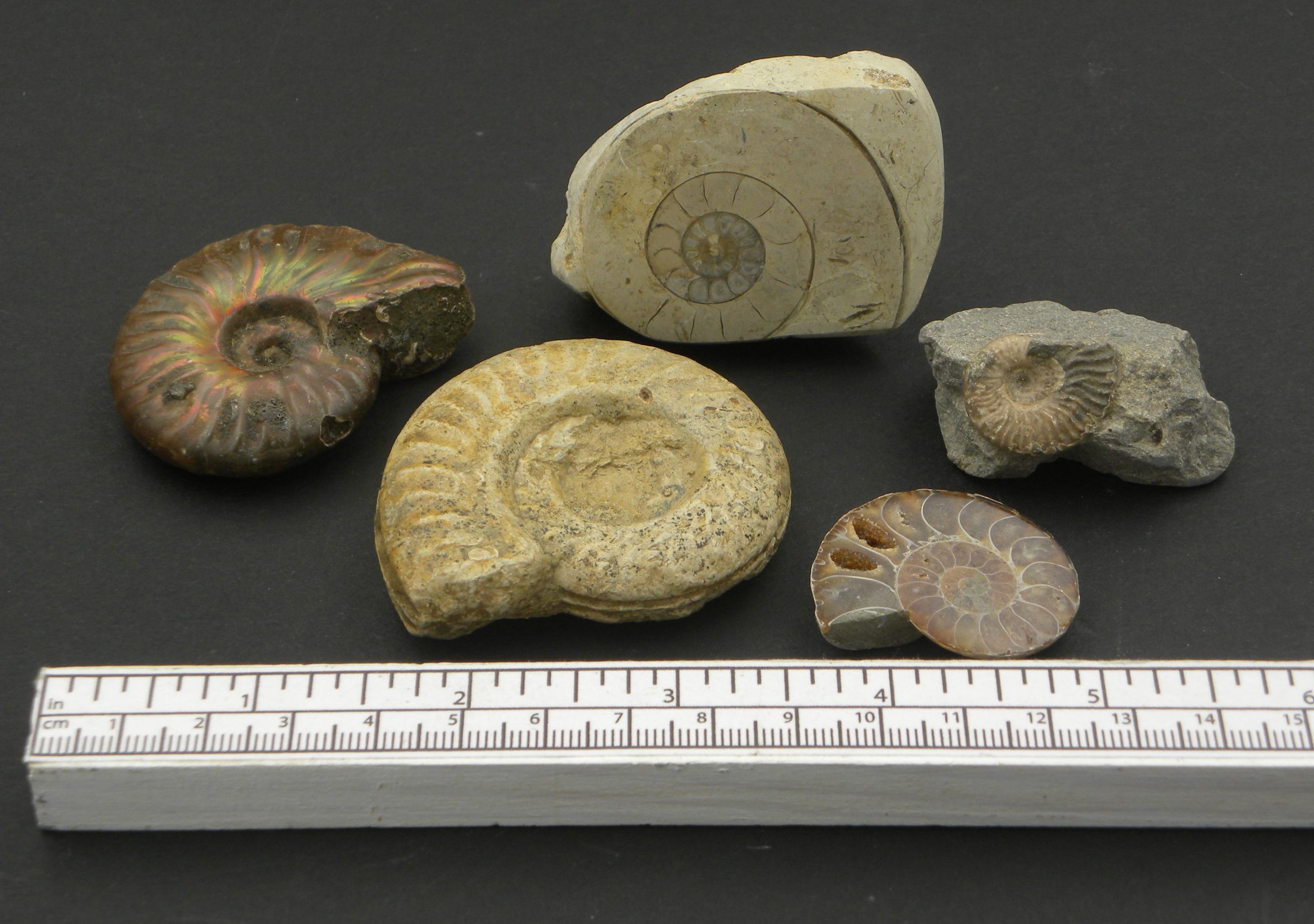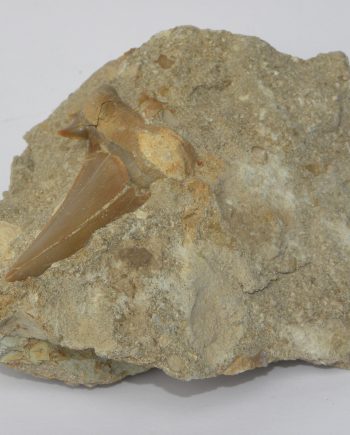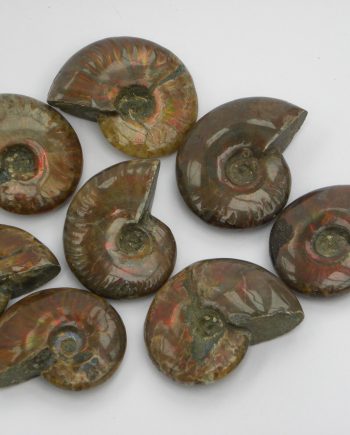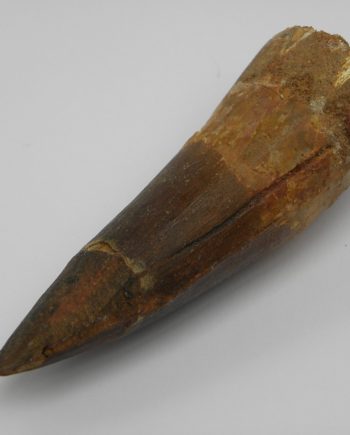Description
Collection of Ammonites
This collection of Ammonites would make the perfect gift for anyone fascinated by fossils and ammonites in particular. There are two ammonites from the Somerset Dorset border, another from Charmouth in Dorset. In addition there are two ammonites from Madagascar, both showing stunning opalescent colouring. This collection would make an excellent gift for any budding palaeontologist, whatever their age.
The promicroceras is a good example from Dorset’s Jurassic Coast. They are from the Charmouth Mudstone Formation, Black Ven, Dorset. The two Somerset Ammonites, consist of one with a cut base and polished and also in its natural condition. Of the two examples from Madagascar one is known as a Fire Ammonite. These have a stunning red opalescent lustre, formed during the fossilisation process, millions of years ago. The mineral aragonite replacing the ammonite shell, creating these wonderful colours. The other Ammonite is a cleoniceras which has been cut in half and polished. This reveals the tiny intricate interior chambers inside some containing gorgeous calcite crystals. Both these these specimens dates back to the Cretaceous period, 120 million years ago.
Ammonites have been extinct for 65 million years. They are a form of Cephalopod, a group of marine molluscs. These first appeared in the Devonian Period, over 400 million years ago. As the ammonite grew larger it added new chambers to the shell. The Ammonite only lived in the largest, and most recently formed chamber. The name Ammonite, derives from from ‘Ammon’ the Greek God. Ammonites were plankton feeders, with long tentacles, and swam upright. Altogether, there were in the region of four thousand different species. Ammonites became extinct 65 million years ago, at the same time as the dinosaurs. Although Ammonites themselves have long been extinct, the squid and octopus that swim in our seas now, are closely related.
Back To Ammonites Back to Gifts Back to Fossils


